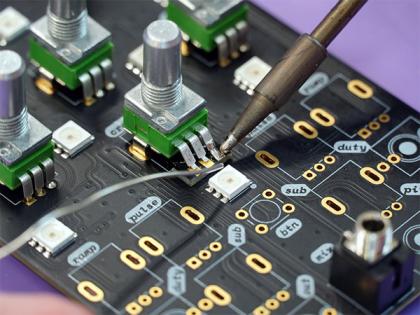Trump's 100% tariff likely to shift more Taiwan's semiconductor industry to US
By ANI | Updated: August 8, 2025 16:14 IST2025-08-08T16:08:39+5:302025-08-08T16:14:49+5:30
New Delhi [India] August 8 : A proposed 100 per cent US tariff on semiconductor imports, announced by President ...

Trump's 100% tariff likely to shift more Taiwan's semiconductor industry to US
New Delhi [India] August 8 : A proposed 100 per cent US tariff on semiconductor imports, announced by President Donald Trump, could force a strategic shift of Taiwan's chip production landscape, potentially pulling more of the island's semiconductor operations onto American soil, reports Focus Taiwan.
Liu Pei-chen, a researcher at the Taiwan Institute of Economic Research, warned that Trump's tariff threat signals a shift from incentive-driven industrial policy to one defined by force. "Now he is deploying the 'stick' strategy, imposing punitive tariffs unless companies invest in the US," she told Focus Taiwan.
According to Liu, this dual pressure, tax incentives for US-based production and tariffs for imports, could push global chipmakers to speed up their American investments. That shift might drive up costs throughout the semiconductor supply chain and, eventually, consumer electronics prices.
She also noted that while the US wants to boost its domestic chip ecosystem, gaps in the supply chain, especially for equipment and materials, mean building fabs in America remains costly. "This could raise prices and create uncertainty for future market demand," she said.
Trump's sudden declaration on Wednesday that "we'll be putting a tariff on of approximately 100 per cent on chips and semiconductors" has sent shockwaves through the global tech sector. Though short on specifics, the statement carried a clear message: companies that manufacture in the US will be spared, while foreign-made chips will be penalised.
Yet not all chipmakers face the same risk. Taiwan Semiconductor Manufacturing Co (TSMC), the world's largest contract chipmaker, may avoid the brunt of the tariff. Derek Scissors, senior researcher at the American Enterprise Institute, told Focus Taiwan that TSMC is likely "at the front of the line for an exemption," thanks to its massive investment in the US.
"There's no way TSMC is going to face a tariff, at least on the products it's making in the US," Scissors said, adding that the tariff plan introduces significant uncertainty, which could disrupt trade and investment decisions across the industry.
That market confidence showed up immediately. Following Trump's announcement, TSMC's shares in Taipei soared nearly 5 per cent to close at an all-time high, while its American depositary receipts (ADRs) jumped 4.86 per cent later in the day.
Earlier in April, Trump's blanket tariff policy targeted Taiwan with a 32 per cent levy, later reduced to 20 per cent. That's still higher than the 15 per cent levied on Japan and South Korea. Scissors called the competitive disadvantage "actually quite small," but acknowledged that Taiwan might offer more US investment to bring the rate down.
Disclaimer: This post has been auto-published from an agency feed without any modifications to the text and has not been reviewed by an editor
Open in app